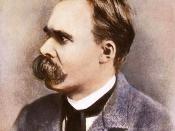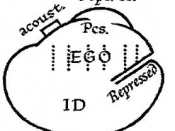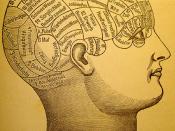The Austrian psychoanalyst Sigmund Freud suggested that the powers motivating man and woman are that mainly of the unconscious. By the power of dreams, a person?s repressed mind comes out in the unconscious. Freud believed that actions in dreams are those that are not rationally accepted by the conscious mind, and therefore the unconscious mind acts as a censor. In Gustav von Aschenbach?s dreams in Death in Venice by Thomas Mann, his thoughts are symbolized by Nietzsche and Freud?s theories. Aschenbach?s homoerotic passions are brought to life in a new environment, and his unconscious mind corrupts his conscious one.
In the beginning scenes of the novelette, Aschenbach shows his passionate side though a subconscious daydream. His mind takes him into a tropical swampland scene teeming with copious beauty. But this place also contains a mixture of lechery and the grotesque. ?(He saw) the hairy shafts of palms rising out of a rank lecherous thicket? (Mann 5).
Additionally, in the dream, ?birds of a strange nature, high shouldered, with crooked bills, were standing in the muck, and looking motionless to one side? (Mann 5). When Aschenbach snaps out of the daydream, he goes back to his normal self-disciplined life.
This daydream symbolizes his irrational, sensual side. By the reference of the lecherous thicket, his repressed sensual side begins to come out. It is surrounded in the beauty of his self-disciplined, moral life. His impulse like the thicket is small and is conquered by the hairy palm, which goes through the heart of his impulses and passions. As the dream manifests further, odd-looking birds stand in the muck and grime of the bog. They are motionless, as if they are stuck. This can be interpreted as to symbolize Aschenbach?s up and coming ?ugly? side in the making. He is stuck, and...


